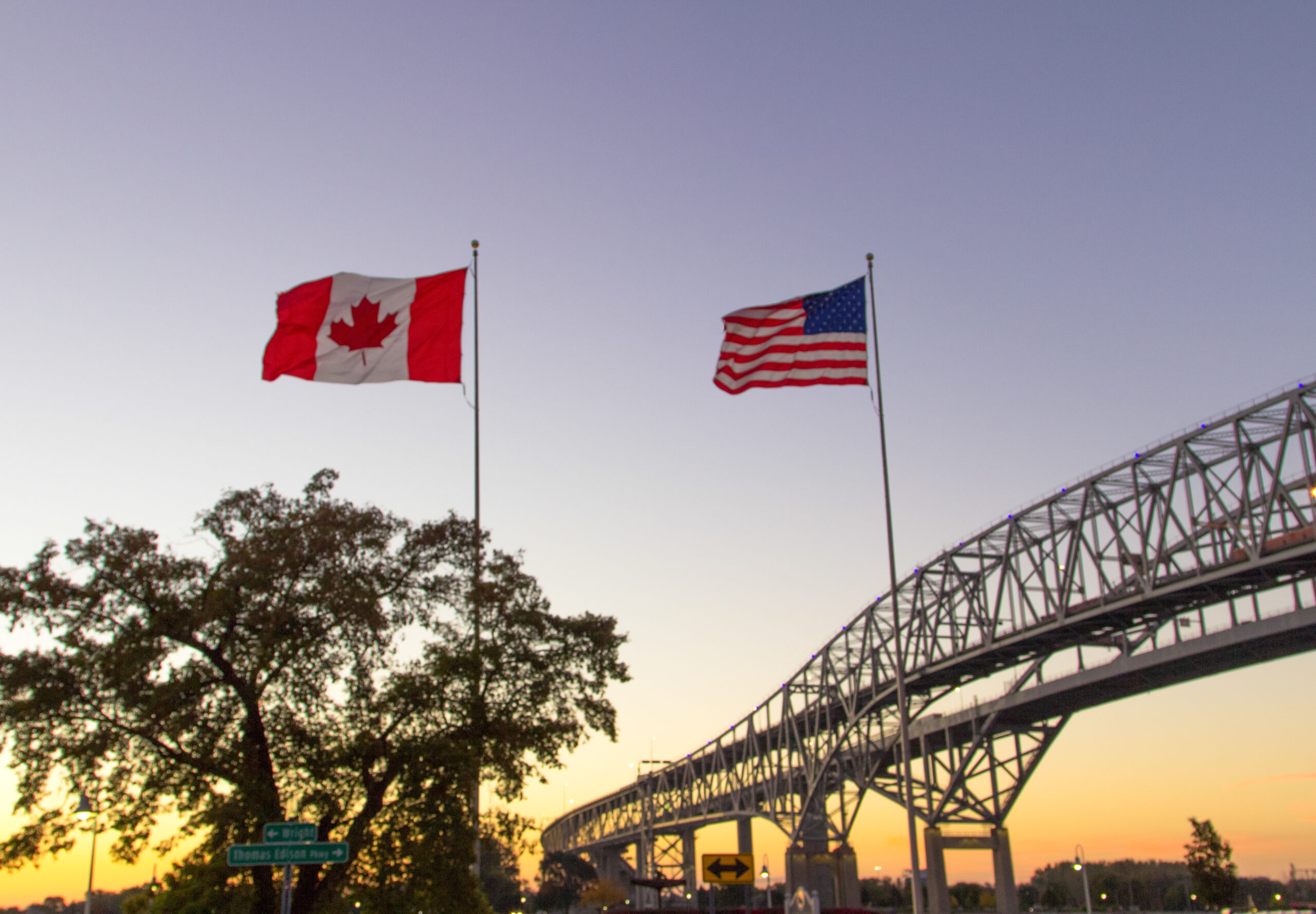(TORONTO, Jan. 21, 2025) — As he promised for several weeks, newly inaugurated President Donald Trump has outlined his intentions on international trade through new policies that will require the attention of all levels of government in Canada and the business community.
The policies outlined in the plan, called the America First Trade Policy (AFTP), reflect long-time campaign promises by Trump. It states that the Secretary of Treasury, in consultation with the Secretary of Commerce and the Secretary of Homeland Security, investigate the causes of the US’s annual trade deficits of goods, as well as the economic and national security implications and risks resulting from such deficits. It also recommends the implementation of appropriate measures, such as a global supplemental tariff, or other policies that can be used to remedy such deficits.
This review will also include:
- The feasibility of creating an External Revenue Service to collect future tariffs and duties.
- Conducting a full economic and security review of the United States’ industrial and manufacturing base to assess whether it is necessary to initiate investigations to adjust imports that threaten the national security of the United State.
- A review to identify any unfair trade practices by other countries and recommend appropriate actions.
- Reviewing and assessing the effectiveness of the exclusions, exemptions, and other import adjustment measures on steel and aluminum.
- Assessing the unlawful migration and fentanyl flows from Canada, Mexico, the People’s Republic of China (PRC), and any other relevant jurisdictions and recommend appropriate trade and national security measures to resolve this emergency.
- Establish a process to develop the US response for the 2026 Canada-U.S.-Mexico trade agreement (CUSMA) review that will examine the impact of CUSMA on American workers in all sectors of the economy.
- Assess the impact of currency manipulation; antidumping; counterfeit product impact on economy/tariffs; contraband, third party manipulation of trade deals
Following the release of the AFTP, President Trump also stated the possibility of placing tariffs of 25 percent as early as February 1, on goods from Mexico and Canada. It is unclear whether the president can or will follow through on that timeline.
“The majority of Canada-US trade moves by truck. In 2024, the Canadian trucking industry moved more than $350 billion worth of imports into the United States,” said CTA Chair Greg Arndt. “Twenty-five percent tariffs threaten our industries and customers in both the US and Canada, as well as thousands of jobs in the trucking sector – the largest employer of males in Canada.
“We know political leadership in Canada is taking this threat seriously, but CTA believes we need to show America that a strong partnership with Canadian businesses grows US jobs and secures a bright future for generations of Americans to come. CTA will be working with all levels of government and supply chain groups to ensure we are part of the solution to prove to Americans that a more prosperous future for all North Americans lies in a strong US-Canada trade partnership.”
According to Aaron Dolyniuk of the Manitoba Trucking Association, President Trump’s America First Trade Policy (AFTP) and proposed 25% tariffs on Canadian goods pose “serious challenges for Manitoba’s trucking industry, which is central to Canada-U.S. trade. These tariffs would increase costs, disrupt integrated supply chains, and threaten thousands of trucking jobs in Manitoba. Industries such as agriculture and manufacturing, which rely on affordable transportation, would also face significant setbacks.
“Manitoba’s trucking sector, which moves billions of dollars in annual cross-border trade, already operates under strict security measures, including advanced cargo tracking and driver screening. Further security enhancements should focus on targeted, cooperative efforts rather than broad tariffs, which undermine trade flows and economic stability,” added Dolyniuk. “The deeply integrated Canada-U.S. supply chains rely on efficient cross-border collaboration, and any disruption would impact businesses and consumers on both sides. Maintaining this collaborative relationship is crucial to supporting the shared prosperity of both nations.”
During his inauguration speech President Trump outlined his intentions with the AFTP process and his emphasized his commitment to imposing tariffs on worldwide trade. Trump has repeatedly linked his tariff policies as a way of correcting what he says are trade imbalances, but also to propel Mexico and Canada to improve border security and curtail the flow of illegal immigration and contraband across the borders. He did so again yesterday, when he mused about the 25 per cent tariffs on Feb. 1.
CTA has urged the Government of Canada and the premiers to take Trump’s demands on border security and immigration seriously. The Alliance has offered input into developing an action plan that addresses many of Trump’s concerns, including the need to take strong measures to secure the truck transportation supply chain by increasing on-road inspection and enforcement activities to deal with immigration, labour, and illegal cargo shipments before they ever reach the border.
“CTA and other business groups will have to make our case to America that business partnerships with Canada not only bring efficiency and productivity to our integrated supply chain, but doing business with Canada helps to grow American jobs,” said CTA president Stephen Laskowski. “At the same time, Canada needs to show the Americans that we are doing everything possible to improve our border security and immigration screening. As a major link of the Canada-US supply chain, CTA and the trucking industry are well positioned to identify the weaknesses and potential improvements to fix the border.”

